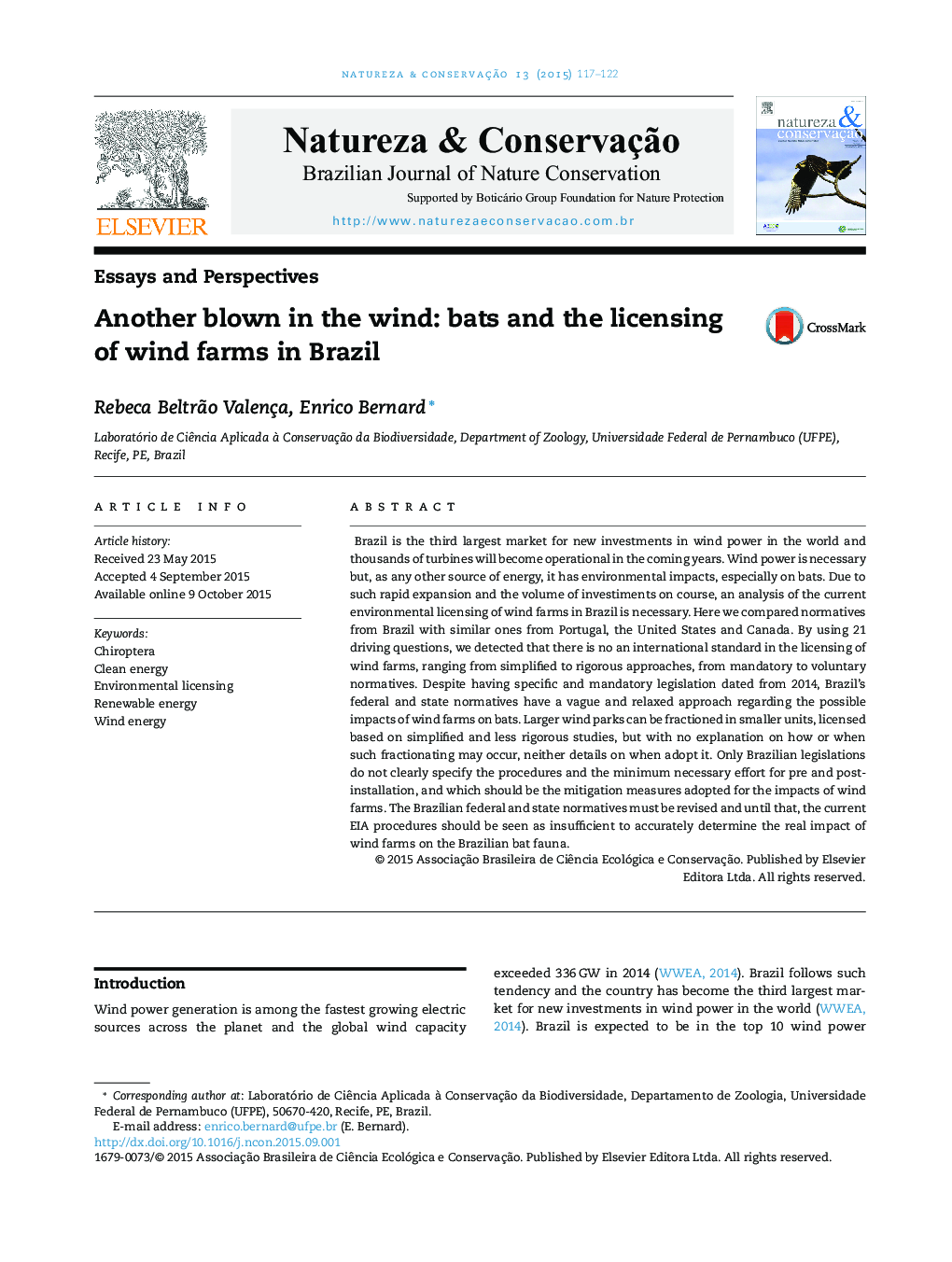| Article ID | Journal | Published Year | Pages | File Type |
|---|---|---|---|---|
| 4400843 | Natureza & Conservação | 2015 | 6 Pages |
Brazil is the third largest market for new investments in wind power in the world and thousands of turbines will become operational in the coming years. Wind power is necessary but, as any other source of energy, it has environmental impacts, especially on bats. Due to such rapid expansion and the volume of investiments on course, an analysis of the current environmental licensing of wind farms in Brazil is necessary. Here we compared normatives from Brazil with similar ones from Portugal, the United States and Canada. By using 21 driving questions, we detected that there is no an international standard in the licensing of wind farms, ranging from simplified to rigorous approaches, from mandatory to voluntary normatives. Despite having specific and mandatory legislation dated from 2014, Brazil's federal and state normatives have a vague and relaxed approach regarding the possible impacts of wind farms on bats. Larger wind parks can be fractioned in smaller units, licensed based on simplified and less rigorous studies, but with no explanation on how or when such fractionating may occur, neither details on when adopt it. Only Brazilian legislations do not clearly specify the procedures and the minimum necessary effort for pre and post-installation, and which should be the mitigation measures adopted for the impacts of wind farms. The Brazilian federal and state normatives must be revised and until that, the current EIA procedures should be seen as insufficient to accurately determine the real impact of wind farms on the Brazilian bat fauna.
